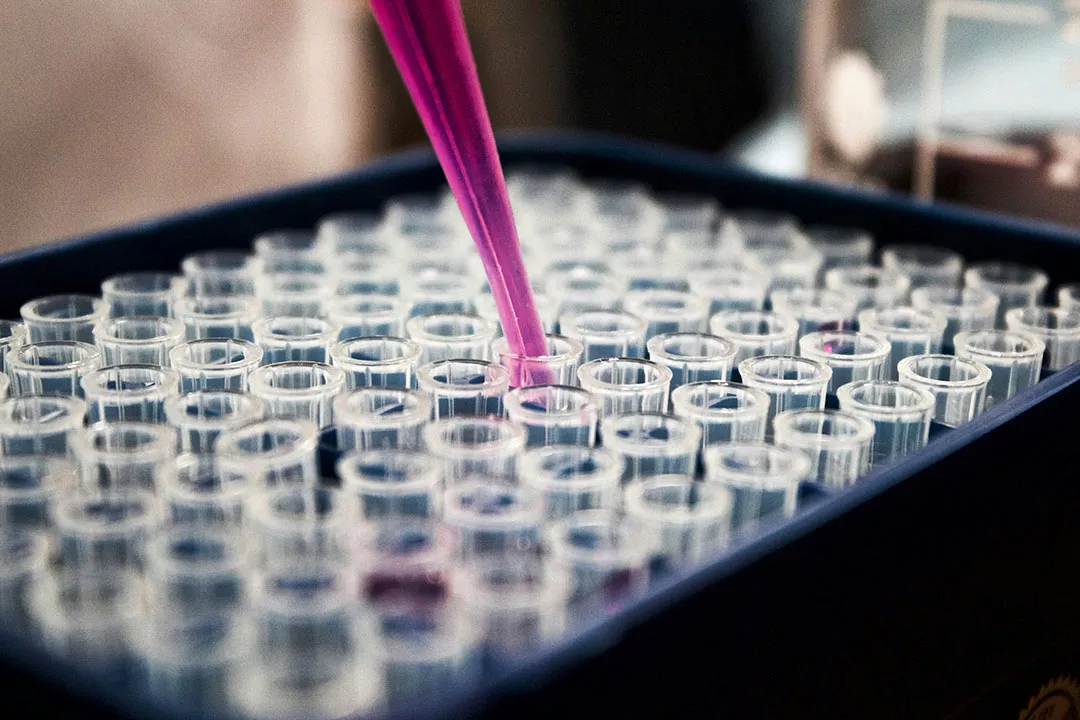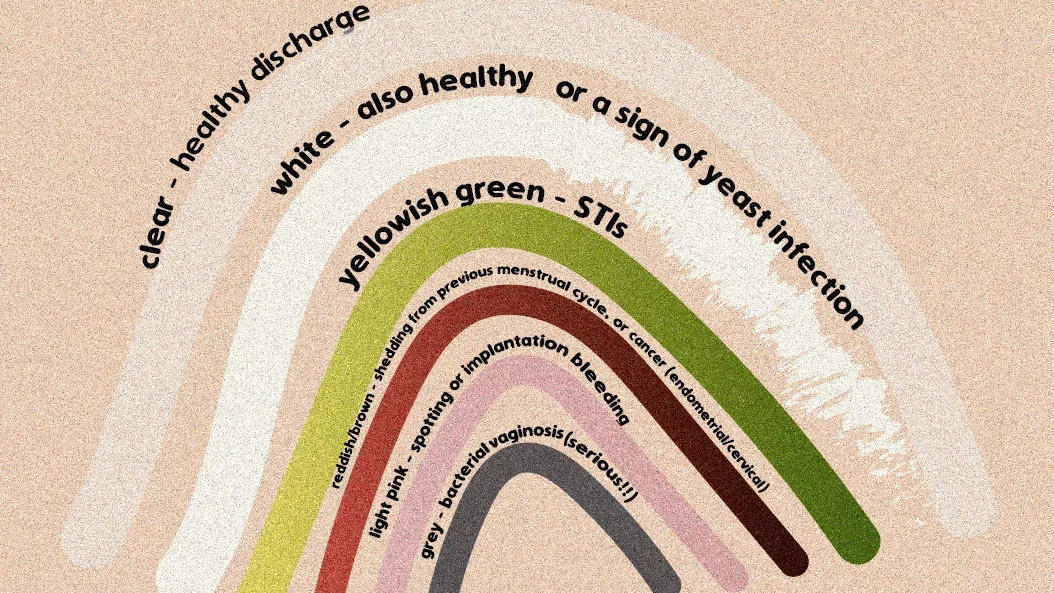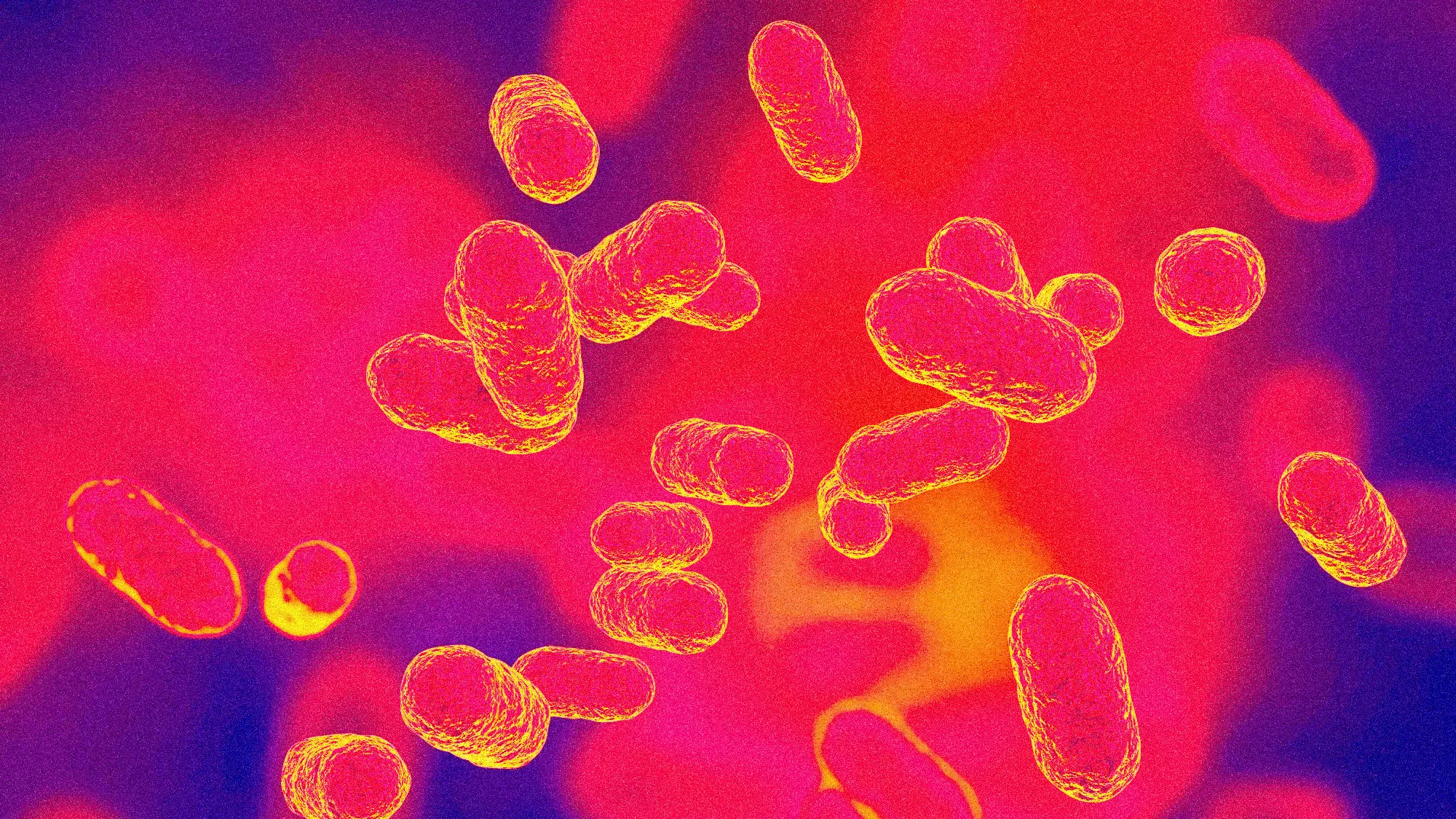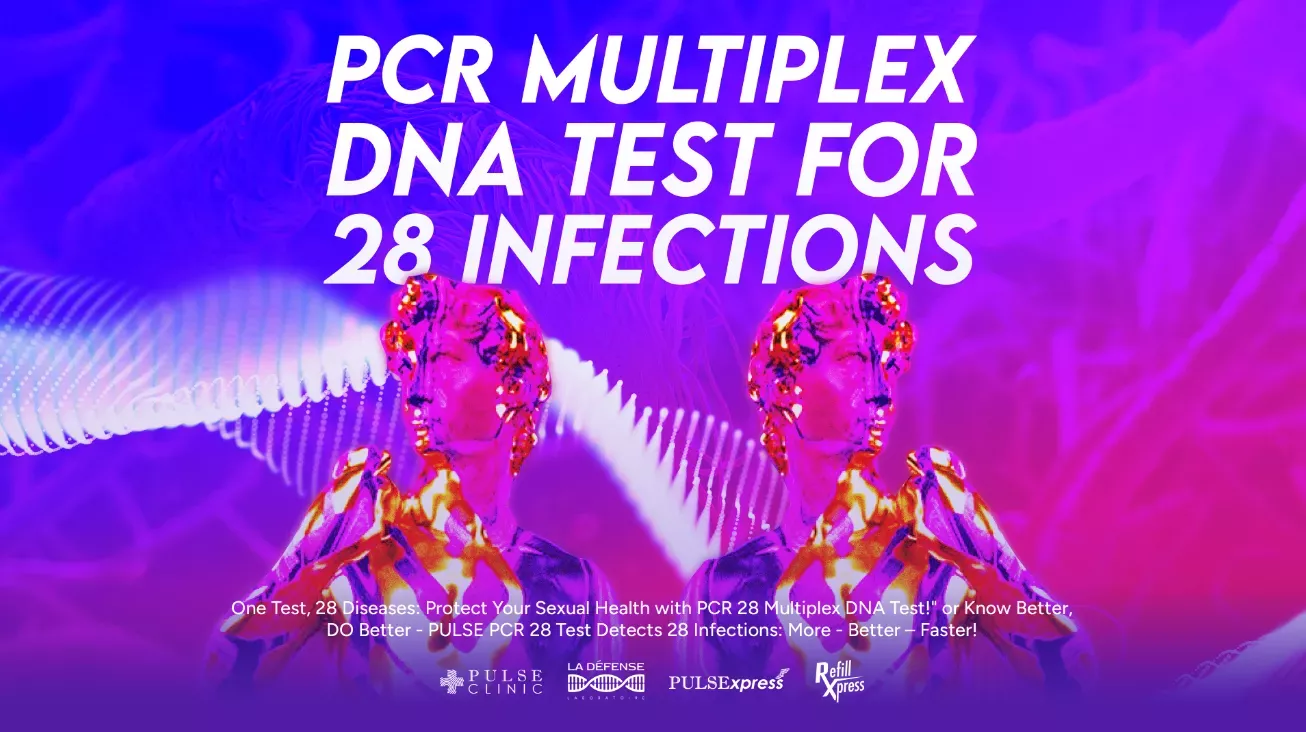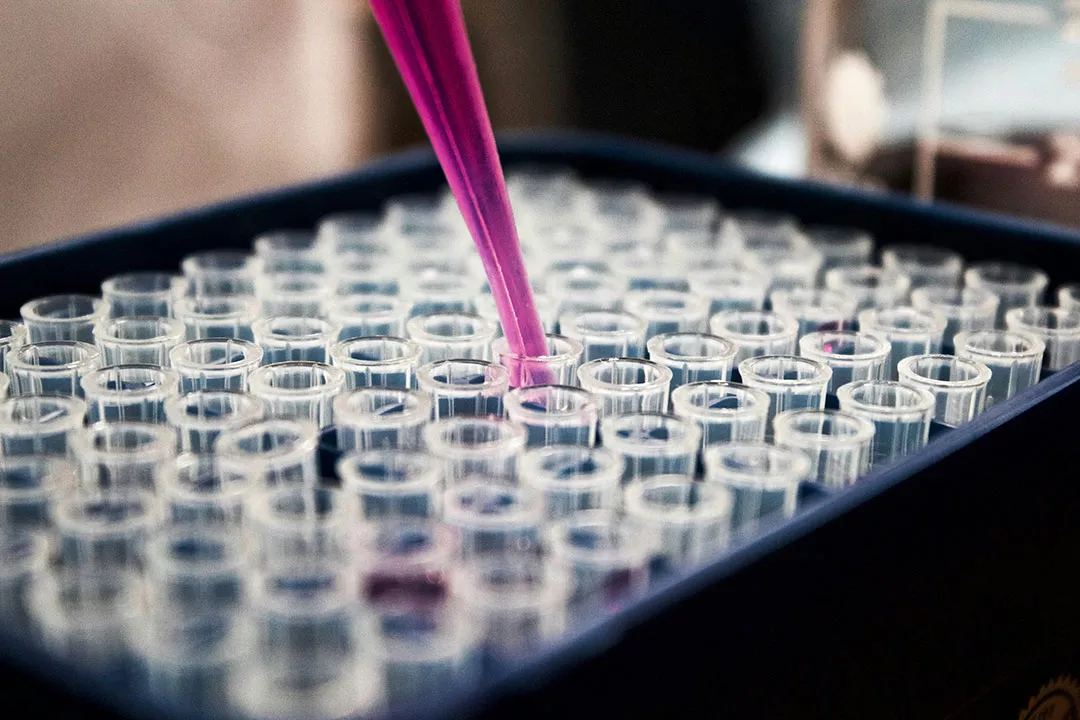Causes of Vaginal Rashes: What You Need to Know?
2653
Vaginal rashes are treatable with medication and home remedies; underlying conditions may lack a cure but can be managed with proper treatment.

Causes of Vaginal Rashes: What You Need to Know?
Vaginal rashes can arise from a variety of causes, including yeast or fungal infections, bacterial infections, or sexually transmitted infections. Allergic reactions to products like soaps or detergents, as well as skin conditions such as eczema or dermatitis, are also common contributors. Additionally, hormonal changes, inadequate hygiene, and friction from clothing or sexual activity can play a role. To accurately identify the cause and receive suitable treatment, it's important to consult a healthcare professional for a proper diagnosis.
If you're experiencing symptoms, you can visit the doctors at PULSE Clinic. To schedule an appointment, email us at info.bkk@pulse-clinic.com or reach out to us through your preferred platform for a chat.
![]() +66 65 237 1936
+66 65 237 1936  @PULSEClinic
@PULSEClinic ![]() PulseClinic
PulseClinic
Why do I have rashes on or around my vagina?
A vaginal rash can be caused by a variety of factors, including a skin problem, an infection, an autoimmune disorder, or parasites. If you've never experienced a rash or itch there before, it's best to see a doctor. Treatment varies according to the cause of the rash. Home treatments may also help alleviate the discomfort.
Vaginal rash symptoms
A vaginal rash usually causes discomfort and itching. Scratching the affected region may exacerbate your symptoms.
Symptoms related to vaginal rash can include:
- itching, burning, or irritation
- bumps, blisters, lesions, or sores
- skin that’s discolored (red, purple, or yellow)
- patches of thickened skin.
- inflammation
- pain during urination or sex
- vaginal discharge
- vaginal odor
- fever
- pain in your pelvic area
- enlarged lymph nodes

Vaginal rash causes and medical treatments
Sometimes an underlying condition is serious or incurable. Anyway, most causes of vaginal rash aren’t medically serious and can be cured. Let's talk about vaginal rash causes and medical treatments.
1. Vaginalitis
When the vulva is implicated, vaginalitis is also known as vulvovaginitis. The vulva is an exterior portion of the genitals that surrounds the vaginal entrance.
According to the Centers for Disease Control, the following are the most prevalent causes of vaginitis:
- Bacterial vaginitis: This occurs when certain bacteria grow and disrupt the natural bacterial balance in your vagina.
- Yeast infections (Candida): Candida albicans is the most commonly involved fungus. You often have some of this fungus in your vaginal region. However, some situations might induce a reduction in healthy microbiota (Lactobacillus) in your vagina, allowing Candida to overgrow.
- Trichomoniasis (trich) is the protozoan parasite responsible for the illness. It spreads from person to person through sexual contact.
The symptoms of vaginitis are as follows:
- Vaginal itching
- Vaginal discharge changes.
- Vaginal bleeding.
- pain during urination or intercourse.
- Some symptoms are specific to the type of illness.
Some symptoms are specific to the type of illness:
- Bacterial infections frequently cause a yellowish or grayish discharge that smells like fish.
- Yeast infections may produce a white discharge that resembles cottage cheese.
- Trichomoniasis may produce a strong stench and a greenish-yellow discharge.
Antifungals are used to treat yeast infections, either over the counter (OTC) or on prescription. Bacterial infections are managed with prescription medications or antibacterial treatments.
2. Genital warts.
Certain kinds of human papillomavirus (HPV) create highly infectious genital warts. They're among the most frequent STIs.
Genital warts normally appear in groups; however, there might be only one. They can also occur in the mouth, throat, or anal region. They have a variety of traits, including:
- Colors range from light (flesh-toned and pearly) to dark (purple, gray, or brown).
- Warts range in size from microscopic to enormous and can be spherical or flat.
- The texture ranges from rough to silky.
While normally harmless, they can grow to be uncomfortable, inflamed, and itchy. Although treating the warts can reduce their size, the virus.
Genital warts typically fade away on their own within a year, so you may wish to wait. Although treating the warts can reduce their size, the virus remains.

Add us on Line and stay in touch.
3. Syphilis
Syphilis is a sexually transmitted infection (STI) caused by the bacterium Treponema pallidum. It is a progressive disease with four phases that may be debilitating and even lethal if left untreated.
During the first stage of syphilis, a tiny sore known as a chancre forms at the injection site. It often occurs three to four weeks following the bacteria's first introduction. The chancre is painless yet extremely infectious. Because it is not painful, it is often overlooked. The chancre disappears after about three weeks, but the germs continue to proliferate throughout your body.
In the second stage of syphilis, a rough, red, or brown rash develops. It begins in one area but will eventually cover your entire body—including the bottom of your feet and palms. You may have skin rashes and/or sores in your mouth, vagina or anus.
Syphilis is treated with penicillin or other antibiotics if a person is allergic to penicillin.

4. Genital herpes
Genital herpes is caused by the herpes simplex virus, often type 2 (HSV-2). It is one of the most prevalent sexually transmitted diseases (STIs). Once infected, the virus remains inside your body's nerve cells and can cause further outbreaks.
Symptoms develop 4–7 days following sexual transmission. Sores around the vagina, buttocks, painful or burning blisters, and anus can linger for up to three weeks. These lesions may burst, exude pus or crust over. Your vulva may become inflamed, swollen, and painful.
The following are symptoms of genital herpes:
- swollen lymph glands
- fever
- headaches and body aches
There is no cure for herpes; however, antiviral medications help reduce the intensity and duration of the outbreak.
Other reasons that can make your vigilant itching and uncomfortable
Let’s see what makes your viginal itching and how to fix it:
Allergic Reactions
Allergies to personal care products like soaps, detergents, or sanitary products can cause irritation and a rash. Latex allergies from condoms or other products can also be a factor. Identifying and avoiding the allergen is key to preventing and alleviating symptoms.
Skin Conditions
Skin conditions such as eczema or psoriasis can affect the vaginal area, leading to redness, itching, and inflammation. These conditions may require specific treatments and management strategies to control flare-ups.
Lichen Sclerosis
Lichen sclerosis is a persistent skin disorder that causes thin, white patches and irritation around the vagina. It is critical to get medical attention for an accurate diagnosis and treatment.
Hormonal Changes
Hormonal fluctuations due to pregnancy, menopause, or the use of birth control methods can impact the vaginal environment, sometimes leading to rashes or irritation. Estrogen levels, in particular, play a significant role in maintaining vaginal health.14.jpg)
Poor Hygiene
Inadequate hygiene practices can contribute to the development of a vaginal rash. Wearing tight or non-breathable clothing, not changing out of wet clothes promptly, or using harsh soaps can irritate the sensitive vaginal area.
Friction and Irritation
Excessive friction from activities such as sexual intercourse or vigorous exercise can lead to a rash. Additionally, using lubricants or products not specifically designed for sensitive areas might irritate.
PCR 28 for vaginal rash
PCR 28 can provide comprehensive testing for 28 pathogens that can be related to vaginal infections and other related symptoms. PCR stands for Polymerase Chain Reaction; it is also called Nucleic Acid Amplification Test (NAAT) and is a modern molecular technique used to detect a particular pathogen (virus or bacterium) in a specimen of blood, body fluid, or other tissue. This technique detects virus or bacterial DNA. The nucleic acid amplification test (NAAT) is the recommended testing method for Chlamydia, Gonorrhoea, Ureaplasma, Mycoplasma, and Trichomonas, among other infections. It has very high specificity (higher than 99.5%) and higher sensitivity and accuracy than culture (the old diagnosis technique). In both men and women, painless urine PCR (yes, you just have to pee) and genital PCR were significantly more sensitive than culture. It can detect infection, whether the organism is dead or alive! This is mostly done in first-world countries and medical schools.
We also have PCR 14 can provide comprehensive testing for 14 pathogens that can be related to vaginal infections and other related symptoms.
Polymerase chain reaction (PCR) for vaginal rash can be used to identify vaginal rash based on its genetic characteristics. Specific genetic markers or gene targets associated with vaginal rash can be amplified and analyzed to confirm their presence.
All PULSE clinics in Thailand provide the most comprehensive PCR tests for 28 infections to give you peace of mind and fast treatment.
When to see the doctor.
If you have never experienced a vaginal rash before, you should visit the doctor. Once you've identified the origin of your rash and found a good treatment, you may be able to cure a recurrence on your own.

Conclusion
Understanding the causes of vaginal rash can help you manage and prevent discomfort. By recognizing the symptoms and seeking timely medical advice, you can address the issue effectively and maintain vaginal health. Always consult a healthcare provider for personalized guidance and treatment.
PULSE Clinic Branches
![]() Thailand
Thailand
PULSE Clinic Silom Bangkok info.bkk@pulse-clinic.com Tel: +66 65237 1936 or WhatsApp
![]() or LINE official account
or LINE official account ![]()
PULSE Clinic Nana Bangkok info.bkk@pulse-clinic.com Tel: +66 95915 6385 or WhatsApp
![]() or LINE official account
or LINE official account ![]()
PULSE Clinic Nana2 Bangkok info.bkk@pulse-clinic.com Tel: +66 99426 6982 or WhatsApp
![]() or LINE official account
or LINE official account ![]()
PULSE Clinic Sukhumvit 37,info.bkk@pulse-clinic.com Tel: +66 92497 9353 or WhatsApp
![]() or LINE official account
or LINE official account ![]()
PULSE Clinic Asoke – Executive Health center Asoke, Bangkok info@eu-health.org Tel :+66 64 742 6528 or WhatsApp
![]() or LINE official account
or LINE official account ![]()
PULSE Clinic South Pattaya info.bkk@pulse-clinic.com Tel :+66 62 828 7969 or WhatsApp
![]() or LINE official account
or LINE official account ![]()
PULSE Clinic North Pattaya info.bkk@pulse-clinic.com Tel :+66 62 828 7969 or WhatsApp
![]() or LINE official account
or LINE official account ![]()
PULSE Clinic Nimman, Chiang Mai info.cnx@pulse-clinic.com Tel: +66 99479 7168 or WhatsApp ![]() or LINE official account
or LINE official account ![]()
PULSE Clinic Patong Beach, Phuket info.phuket@pulse-clinic.com Tel: +66 95261 5282 or WhatsApp
![]() or LINE official account
or LINE official account ![]()
PULSE Clinic Phuket Town, Phuket info.phuket@pulse-clinic.com Tel: +66 64059 1495 or WhatsApp
![]() or LINE official account
or LINE official account ![]()
![]() Malaysia
Malaysia
PULSE Clinic Bukit Bintang, Kuala Lumpur info.kl@pulse-clinic.com Tel: +60321102122, Whatsapp +601165388678
PULSE Clinic Bangsar, Kuala Lumpur info.kl@pulse-clinic.com Tel: +60321102122, Whatsapp +601165388678
PULSE Clinic George Town, Penang info.pg@pulse-clinic.com+60138039693, Whatsapp +60138039693
Hong Kong
PULSE Clinic Central, Hong Kong info.hk@pulse-clinic.com Tel: +852 2389 8250
![]() Singapore
Singapore
PULSE Clinic Tanjong Pagar, Singapore info.sg@pulse-clinic.com Tel: +65 6974 59190 or WhatsApp
![]()
![]() Philippines
Philippines
PULSE Clinic Manila, Philippines info.ph@pulse-clinic.com Tel: +63 91712454970or WhatsApp
![]() or LINE official account
or LINE official account ![]()
We’re here to help
With whatever you’re experiencing, you are not alone. PULSE Social Enterprise is here for any concerns and questions that you might have about your health.
From general wellness to mental well-being to sexual health, we will be sure to give you fast, reliable, and safe diagnosis, treatment, and consultation.
To book an appointment, please email us at info.bkk@pulse-clinic.com or chat with us on your preferred platform.
![]() +66-84-226-2569
+66-84-226-2569  @PulseRx
@PulseRx ![]() PULSEClinic
PULSEClinic

















